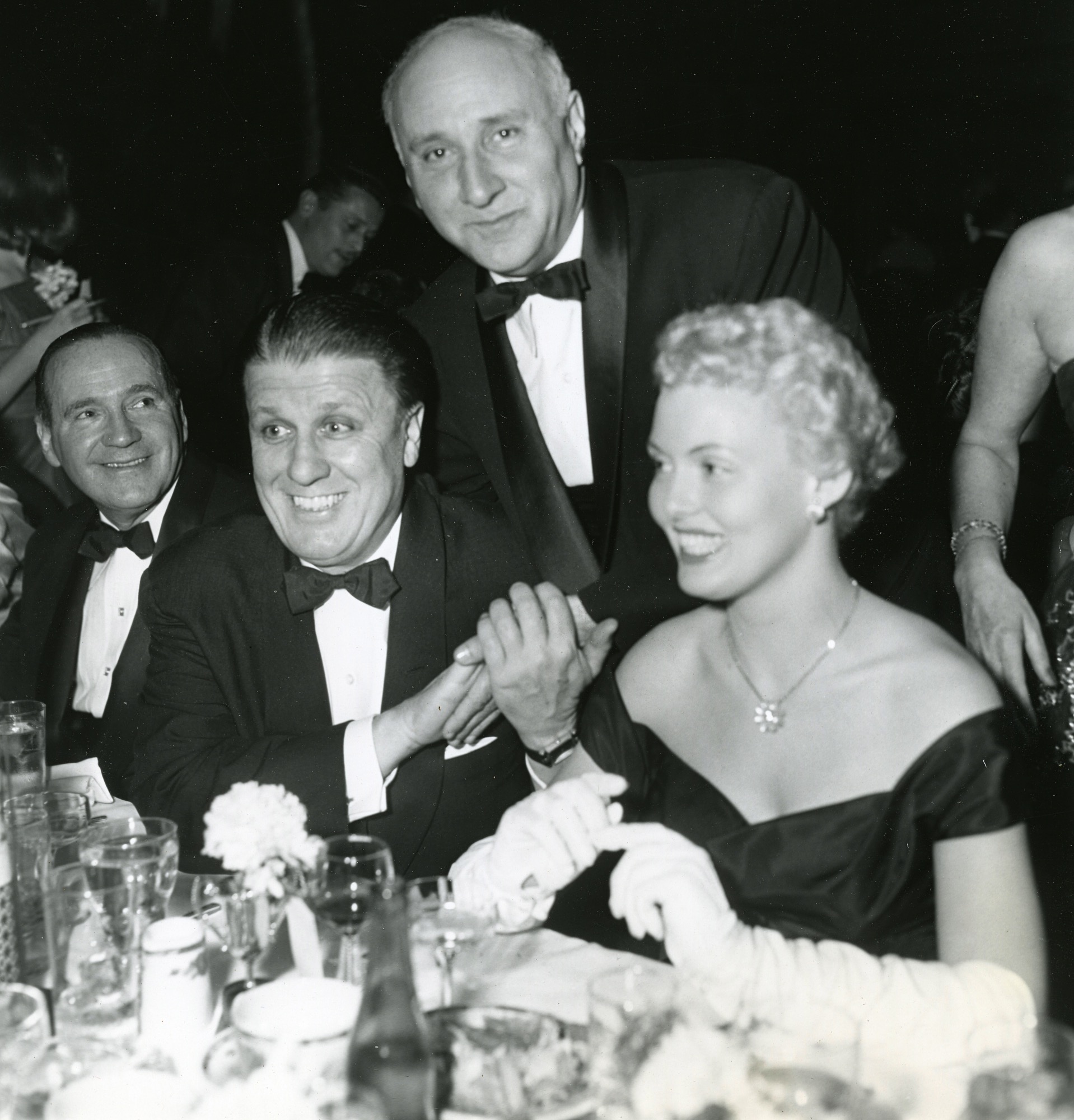
- Golden Globe Awards
1957: An Easterner for Westerns

It’s hard to believe but this article is based on a true story: A man who started to play the piano in Tsarist Russia, and who learned music in the Soviet Union and Weimar Germany, became one of the most prolific composers of the most American film genre, westerns.
The scene: A lone man rides his horse into a nondescript town. As the credits roll, we hear one of the most immortal anthems in movie history, “Do Not Forsake Me, Oh My Darlin’,” followed by a composition the American Film Institute ranked as #10 on their list of the 100 greatest film scores.
The film, of course, is High Noon. And its composer is Dimitri Tiomkin. The opening song changed film history. Ever since Tiomkin’s mood-setting introduction, songs specifically written and recorded for a film (as opposed to the use of prerecorded songs) became universally popular.
But Tiomkin left an even bigger footprint upon the history of film music, an influence most composers — including present-day orchestrators like Golden Globe winners Hans Zimmer and Alexandre Desplat — have been following ever since: After intensely studying a script, Tiomkin would outline the major themes, set emotional high and low points, and chart the flow of his movements accordingly. He used a stopwatch to synchronize music exactly with the action onscreen. For the final score, he assembled an orchestra, rehearsing while running the edited film in the background until he was satisfied he was ready for the final recording.
This professional acumen made Tiomkin the favorite of many directors, from Frank Capra to Howard Hawks to Alfred Hitchcock. In the 1950s, he was the highest-paid film composer, creating scores at close to a rate of one feature film per month. Between 1948 and 1958, his “golden decade,” he composed 57 film scores.
Tiomkin was born in Kremenchuk, Russia (today Ukraine), on May 10, 1894. His mother was a musician who began teaching him piano at a very early age; he was additionally classically trained at the Saint Petersburg Conservatory. Later, he worked for a revolutionary mass spectacle, “The Storming of the Winter Palace,” celebrating the Bolshevik Revolution. While his country turned communist, Tiomkin supported himself by playing piano accompaniment for Russian silent films.
Expecting no great future in his “Mother Russia,” he traveled to Berlin, intensifying his skills as a composer of light classical and popular music. After a few years in Paris, he aimed for Hollywood. In 1931, Tiomkin was hired by Universal to score the Russian-themed Resurrection. The rest is film music history.
Despite composing music for a whole spectrum of comedies, dramas, and documentaries, Tiomkin is today mainly remembered for his music in Westerns that he helped make into classics: Duel in the Sun, Red River, High Noon, The Big Sky, Gunfight at the O.K. Corral, and Last Train from Gun Hill.
In 1957, the Hollywood Foreign Press Association recognized Tiomkin’s monumental body of work with a Special Achievement Award — his third of seven eventual Golden Globes.-

